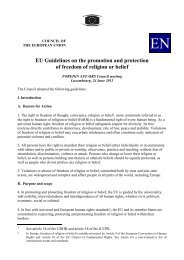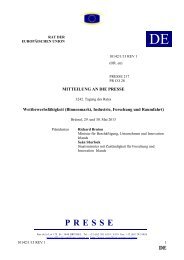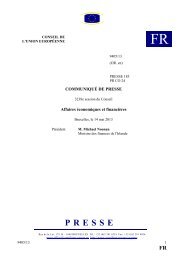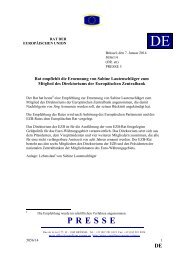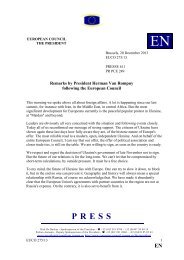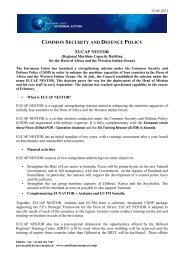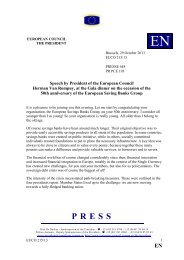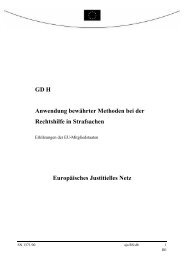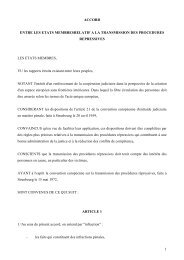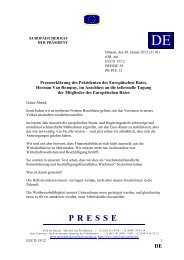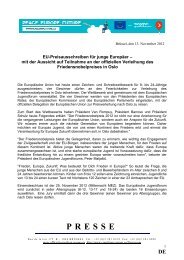14508/09 ADD 1 PL/vk 1 DG G COUNCIL OF THE ... - Europa
14508/09 ADD 1 PL/vk 1 DG G COUNCIL OF THE ... - Europa
14508/09 ADD 1 PL/vk 1 DG G COUNCIL OF THE ... - Europa
Create successful ePaper yourself
Turn your PDF publications into a flip-book with our unique Google optimized e-Paper software.
4. 11. Women and the environment (K)<br />
4.11.1. The strategic objectives from the Platform for Action<br />
Following the Beijing platform for Action Women and the Environment was defined as critical<br />
area K and associated with three strategic objectives:<br />
• K.1. Involve women actively in environmental decision-making at all levels<br />
• K.2. Integrate gender concerns and perspectives in policies and programmes for sustainable<br />
development<br />
• K.3. Strengthen or establish mechanisms at the national, regional and international levels to<br />
assess the impact of development and environmental policies on women<br />
4.11.2. Availability and relevance of EU-wide indicators<br />
No indicators on women and the environment have been developed in the EU.<br />
4.11.3. Trends in the discussion on gender and environment<br />
The strategic objectives in the Beijing platform stress the importance of increasing the participation<br />
of women in the sectors related to environmental issues. The environmental field is broad and this<br />
means that gender balance has to be achieved in a range of sectors. Europe-wide data on policy-<br />
making, sector specific professions, and education show gender gaps. For example, as the section in<br />
this report on women and decision-making shows, political decision-making is far from gender<br />
balanced. Furthermore, the EU is a segregated workplace as shown in the section on women and the<br />
economy. Women mainly have jobs in health, caring and service professions while industrial jobs<br />
are often dominated by men. Sectors such as energy, transport, and technological development are<br />
highly important for environmental issues but tend to be dominated by men in the workforce.<br />
Furthermore, managerial and policy-making positions in these sectors are entrusted mainly to men.<br />
<strong>14508</strong>/<strong>09</strong> <strong>ADD</strong> 1 <strong>PL</strong>/<strong>vk</strong> 118<br />
ANNEX <strong>DG</strong> G EN



